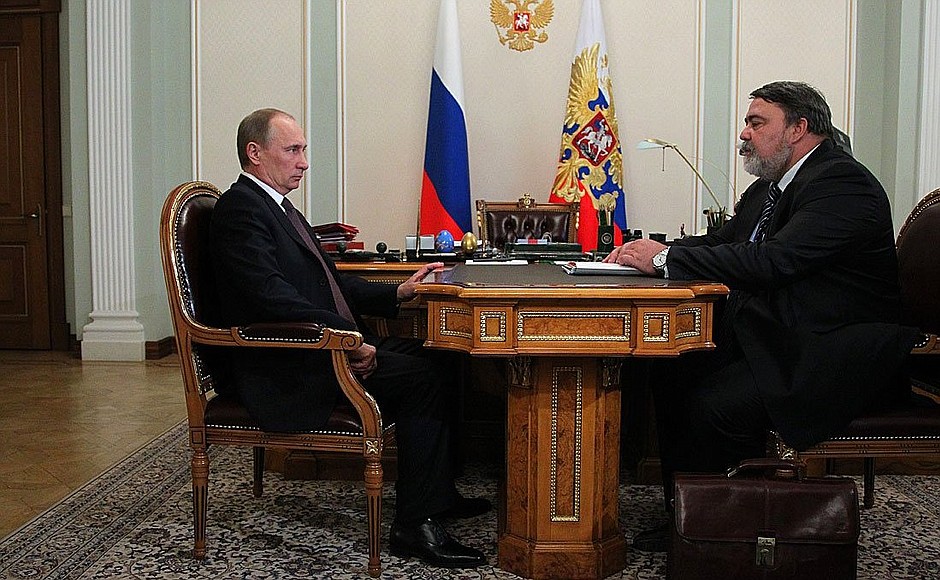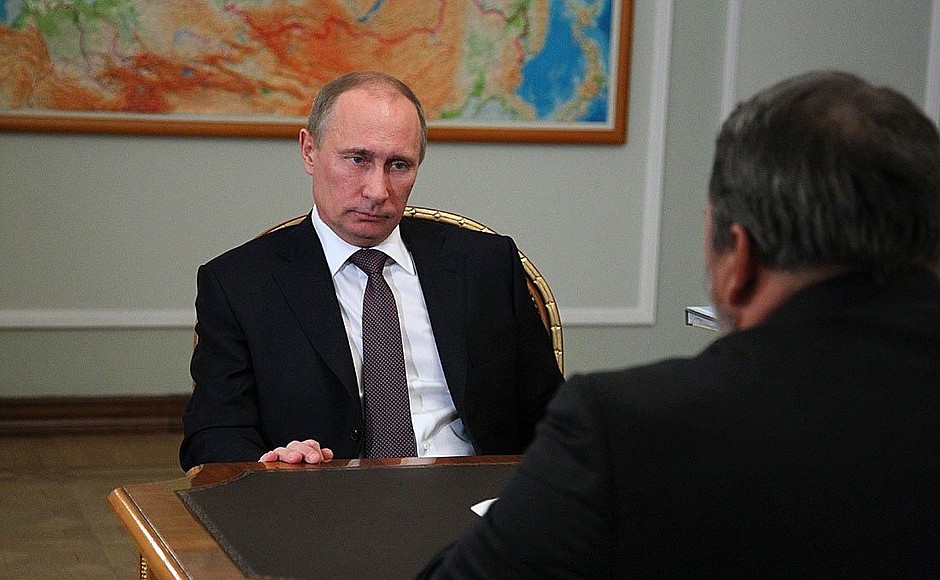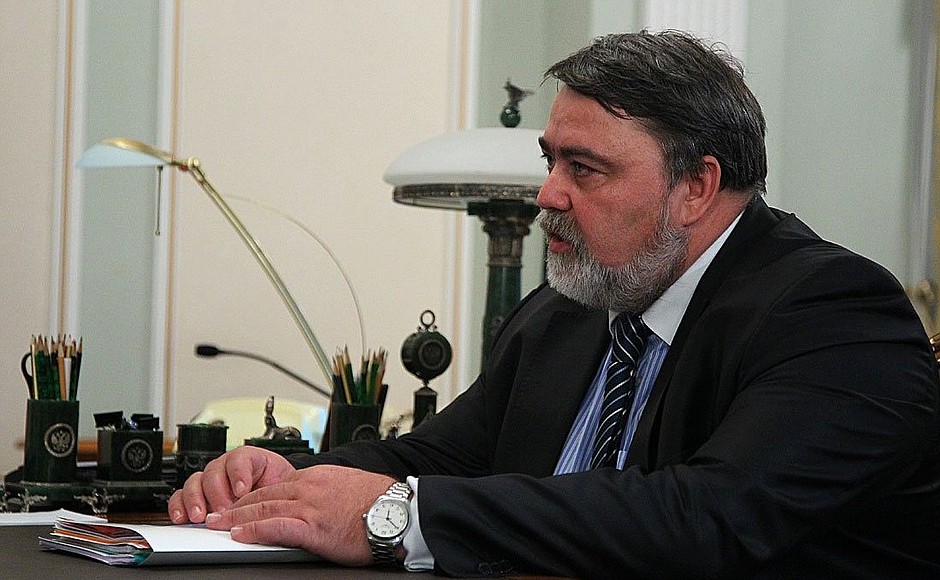The discussion also touched on protecting Russian interests with regard to fishing, processing and supply of fish to the Russian market.
* * *
President of Russia Vladimir Putin: Mr Artemyev, you wanted to report to me on the situation in the petrochemicals market and the efforts that your agency is taking to create a more favourable market environment in the Far East, including in the fishing industry.
Head of The Federal Anti-Monopoly Service Igor Artemyev: Mr President, per your instructions, over the past three years we have been developing the legal framework for regulation of the petroleum products. The legal base was finally formed two years ago. After that the judicial inquiries into our major oil companies were completed, and the highest Russian courts gave their support to the Russian lawmakers.
We developed a system of regulation based on market principles, which is as good as the best European practices and which enables us to stabilise the prices for petrochemicals. In other words, if someone in the Russian Federation today tries to apply high monopoly prices or unfair competition, such a position will not be shared by the courts or the legislature, or by law enforcement agencies.
In recent months, the Russian Government has increased excise taxes. This was done to supplement the road funds’ revenue to build new roads. However, the prices have changed by exactly the same amount or even less. In general the growth in prices last year was below inflation for most items. We experienced a crisis in the past, but we don’t foresee a new recession now. Moreover, the Government has every opportunity to use the existing practices to provide a quick response, and to ensure within a few days that the prices remain stable.
Naturally, demand will increase in the spring due to the sowing campaign. We can expect a small rise in prices, but it will be within a few percentage points, no more.
As for the Far East, Mr President, this is a major issue. In the 1990s the Russian fishing industry was rather neglected, unfortunately, and it appears that many foreign companies secretly bought up our fleet.
At the same time, the law on foreign investment in strategic sectors, which came into force in April 2008, required all such foreign companies to submit applications, register and obtain the consent of the Government Commission on Foreign Investment.
The reason is that no major country in the world allows foreigners to produce its biological resources except by special permission. Our national resources too should belong to our fishermen and the people who live in the Far East, on the Barents Sea coast, and so on.
It turned out that foreign companies have bought up the majority of our fleet through secret agreements, without informing Russian people, the Russian Government or the Russian Parliament.
It took me two years to collect this information, and when the Government, headed by you at the time, resolved to address this issue, it became clear that many companies were willing to leave.
In fact, a number of foreign companies are selling their assets right now. They may agree to invest in fish processing on the coast or they may wish to build a fleet – both options are legal. But as far as the catch is concerned, that is our national treasure and our national interests.
Also, interestingly enough, we discovered a large number of established cartels during this investigation, including those created by foreigners, which coordinated the supply of fish to the Russian market, limiting supplies and regulating prices; that is, they were engaged in illegal activities in order to artificially raise the prices in Russia.
Today, the investigation is ongoing. We hope to complete it next year. As you know, we have Article 178 of the Criminal Code, which, I hope, will be applied against the perpetrators of this illegal activity.
<…>



